Cloud engineers are the architects of modern digital infrastructure, orchestrating the complex systems that power today's businesses. As a recruiter or hiring manager, you're tasked with finding these tech wizards who can seamlessly blend networking, security, and software development skills. The challenge? Many companies underestimate the breadth of expertise required or struggle to assess candidates' practical abilities in cloud environments.
This guide will walk you through the process of hiring top-notch cloud engineers, from crafting an compelling job description to conducting effective interviews. We'll also explore cloud computing skills assessments and provide insights on evaluating candidates' expertise across various cloud platforms.
Table of contents
Why Hire a Cloud Engineer?
A cloud engineer can help your organization solve infrastructure challenges and optimize cloud resources. They can address issues like slow application performance, high operational costs, or security vulnerabilities in your current setup.
Consider hiring a cloud engineer when you need to:
- Migrate existing applications to the cloud
- Design and implement scalable cloud architectures
- Improve cloud security and compliance
- Automate cloud operations and deployments
If you're unsure about committing to a full-time hire, start with a cloud computing skills assessment to evaluate potential candidates. This can help you gauge the expertise needed and decide between hiring a full-time cloud engineer or working with a consultant for specific projects.
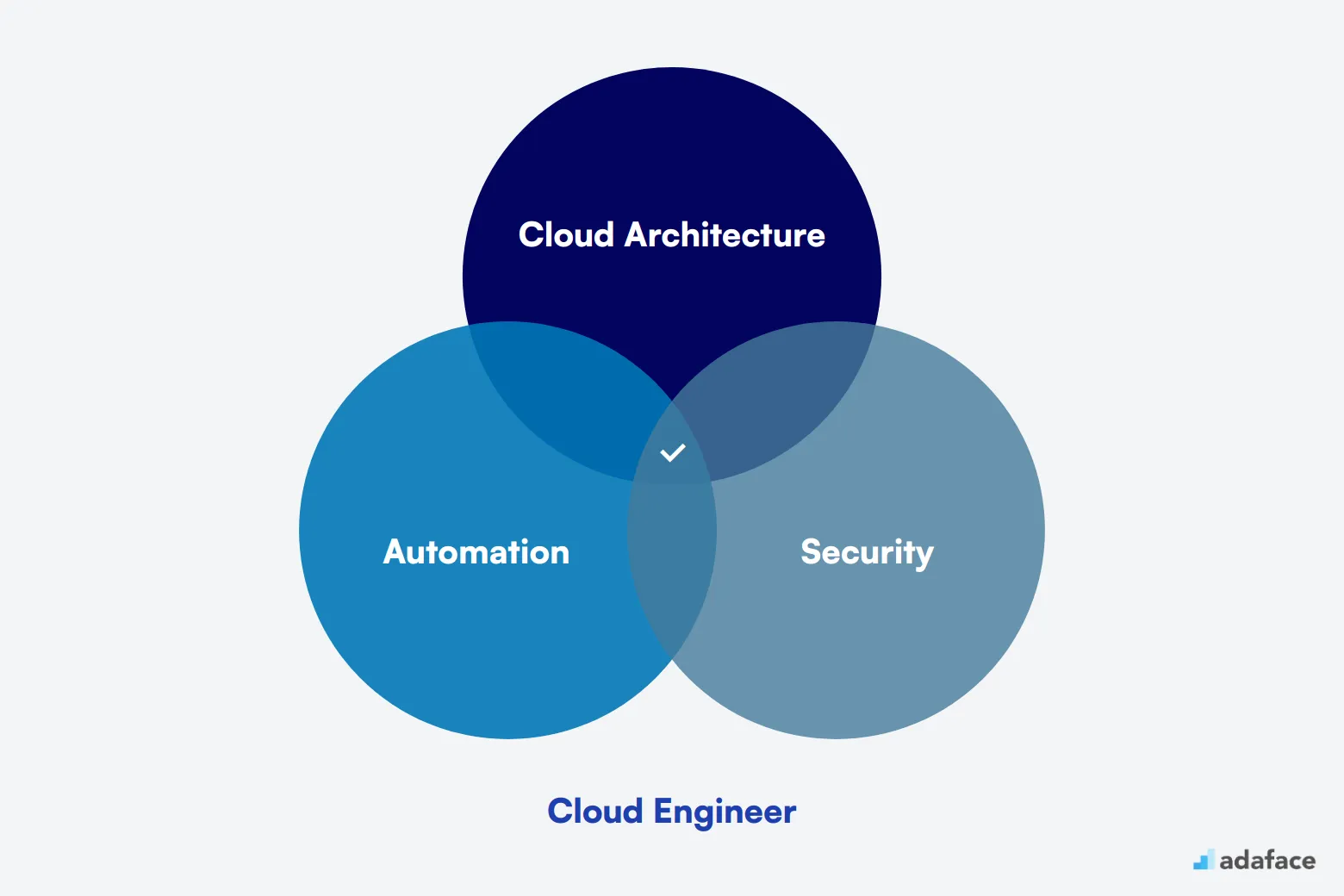
What Does a Cloud Engineer Do?
A Cloud Engineer designs, manages, and optimizes cloud systems to ensure they are scalable, secure, and reliable for businesses. This role involves working with cloud platforms like AWS, Azure, and Google Cloud to support and enhance a company's digital infrastructure.
Day-to-day tasks of a Cloud Engineer include:
- Designing and implementing cloud-based solutions to meet the company's needs.
- Monitoring system performance and ensuring high availability and reliability.
- Collaborating with IT teams to innovate and improve existing cloud setups.
- Managing cloud resource provisioning and ensuring cost-effectiveness.
For more on the skills required to excel in this role, explore our cloud engineer skills guide.
Cloud Engineer Hiring Process
Hiring a cloud engineer can take about 1 to 2 months and involves several key steps. The timeline can vary based on your organization's requirements and speed of execution.
- Craft a precise job description using industry-standard templates. You can find excellent examples in our cloud engineer job description. Post it on relevant job boards to attract the right candidates.
- Screen resumes and shortlist candidates within the first week. Look for relevant cloud computing experience and certifications like AWS, Azure, or GCP.
- Conduct skills assessments using tailored cloud-related tests. This is a crucial step to evaluate candidates' technical expertise and problem-solving skills.
- Interview shortlisted candidates, focusing on both technical and soft skills. This stage should take about 1-2 weeks depending on the number of candidates.
- Make an offer to the ideal candidate after assessing all interviews and skills tests. Swift decision-making is key to securing top talent.
Overall, expect the hiring process to take 1-2 months. You'll start with a strong job description, move through resume screening, skills assessments, and interviews, and finally make your offer. Each step is critical in finding your next great cloud engineer, and we will discuss these steps further in our detailed guide.
Key skills and qualifications for Cloud Engineers
Creating the ideal candidate profile for a Cloud Engineer can be tricky. The cloud landscape is vast, and requirements can vary based on your company's specific needs and tech stack.
To help you start, here's a breakdown of common required and preferred skills for Cloud Engineers. Remember, what's must-have for one company might be just a preference for yours.
When evaluating candidates, consider using coding tests to assess their practical skills in cloud technologies and scripting languages. This can give you a more accurate picture of their capabilities beyond just their resume.
| Required skills and qualifications | Preferred skills and qualifications |
|---|---|
| Bachelor’s degree in Computer Science, Information Technology, or related field | Experience with infrastructure as code tools like Terraform or CloudFormation |
| Three or more years of experience in cloud computing | Certifications in cloud platforms (e.g., AWS Certified Solutions Architect, Azure Certified Engineer) |
| Proficiency in cloud service providers such as AWS, Azure, or Google Cloud Platform | Experience with CI/CD pipelines and DevOps practices |
| Strong scripting skills in Python, Bash, or similar languages | Knowledge of security compliance standards and cloud security tools |
| Familiarity with containerization and orchestration technologies such as Docker and Kubernetes | Strong understanding of networking and virtualization technologies |
How to Write a Cloud Engineer Job Description
Once you have a candidate profile ready, the next step is to capture that information in the job description to attract the right candidates. Writing a strong Cloud Engineer job description is key to drawing in talented professionals.
- Highlight key responsibilities and impact: Clearly define the role's responsibilities like managing cloud services, implementing best practices, and optimizing the cloud architecture. This helps candidates understand the significance of their work and its impact on the organization.
- Balance technical skills with certifications and soft skills: Alongside technical requirements such as proficiency in AWS, Azure, or Google Cloud, and relevant certifications, emphasize soft skills like problem-solving and teamwork. This balance attracts well-rounded candidates.
- Showcase company and role's unique selling points: Differentiate your company by highlighting aspects like a collaborative team environment, opportunities for skill development, or innovative projects. Unique selling points can make a difference in attracting top talent.
For a detailed Cloud Engineer job description, you can refer to this guide that aligns with industry standards.
Top Platforms to Hire Cloud Engineers
Now that you have your job description ready, it's time to source candidates by listing the position on various job platforms. Utilizing the right channels can significantly impact the quality and quantity of applicants you receive.
LinkedIn Jobs
Ideal for finding full-time cloud engineers. Large user base and professional networking features make it easy to reach qualified candidates and view their work history.

Dice
Specialized job board for tech roles. Excellent for finding cloud engineers with specific skills and certifications. Allows for detailed job listings with technical requirements.
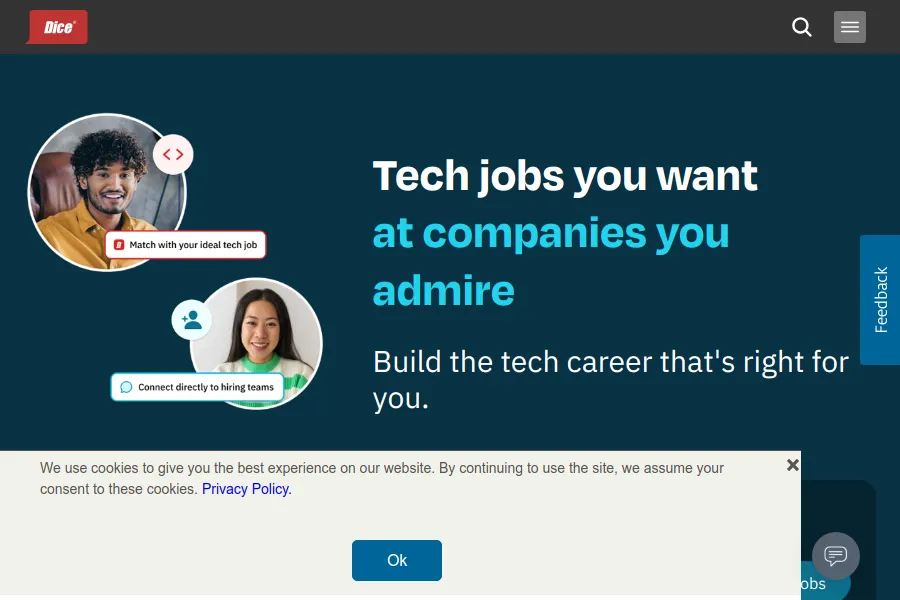
Indeed
Large job board with a wide reach. Good for posting cloud engineer positions of all types. Offers resume search and candidate screening tools.

For a broad reach, consider LinkedIn Jobs, which is perfect for full-time roles and offers extensive networking potential. Another strong option is Indeed, known for its wide audience and efficient resume searching capabilities. If you're targeting tech-specific candidates, Dice focuses exclusively on tech roles, ensuring you access qualified cloud engineers.
Keywords to Look for in Cloud Engineer Resumes
Resume screening is a key step in finding the right Cloud Engineer. It helps you quickly identify candidates with the most relevant skills and experience before moving to interviews.
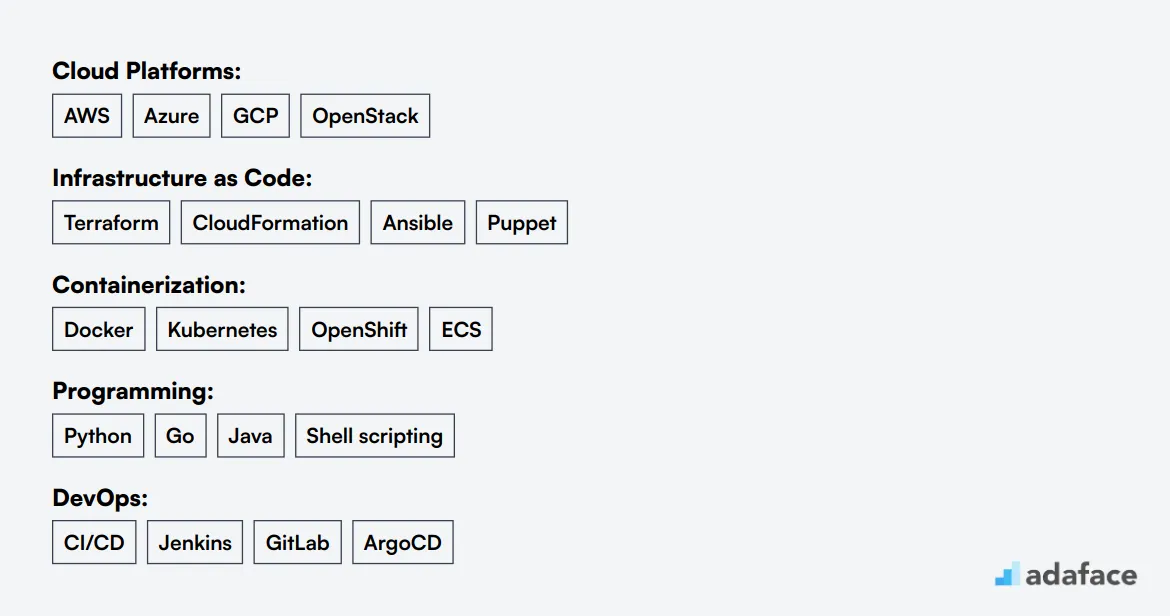
When manually screening resumes, focus on key cloud platforms like AWS, Azure, or GCP. Look for programming languages such as Python, Java, or Go, and experience with infrastructure-as-code tools like Terraform. Cloud computing skills and containerization knowledge (Docker, Kubernetes) are also important.
To streamline the process, consider using AI-powered tools for initial resume screening. These can quickly analyze multiple resumes against your job requirements, saving time and reducing bias in the selection process.
TASK: Screen resumes for Cloud Engineer role
INPUT: Resumes
OUTPUT:
- Email
- Name
- Matching keywords
- Score (out of 10)
- Recommendation
- Shortlist (Yes/No/Maybe)
RULES:
- Use 'Maybe' if unsure about fit
- Keep recommendations concise
KEYWORDS:
- Cloud Platforms (AWS, Azure, GCP)
- Programming (Python, Java, Go)
- Infrastructure as Code (Terraform, CloudFormation)
- Containerization (Docker, Kubernetes)
- DevOps practices
- Cloud certifications
Use this prompt with AI tools to efficiently screen candidates for your Cloud Engineer position.
Recommended Skills Tests for Assessing Cloud Engineers
Skills tests are an effective way to evaluate Cloud Engineer candidates beyond their resumes. They provide objective insights into a candidate's technical abilities and problem-solving skills. Here are five key tests we recommend for assessing Cloud Engineers:
Cloud Computing Test: This cloud computing test evaluates a candidate's understanding of cloud infrastructure, services, and best practices. It covers topics like virtualization, scalability, and security in cloud environments.
AWS Test: An AWS online test assesses proficiency in Amazon Web Services, including EC2, S3, and other core services. It helps identify candidates who can effectively design and manage AWS-based cloud solutions.
Docker Test: The Docker online test measures a candidate's ability to work with containerization technology. It covers container creation, management, and orchestration, which are key skills for modern cloud deployments.
Kubernetes Test: A Kubernetes online test evaluates expertise in container orchestration. It assesses skills in deploying, scaling, and managing containerized applications in cloud environments.
DevOps Test: The DevOps online test examines a candidate's understanding of DevOps principles and tools. It covers continuous integration, deployment, and infrastructure as code, which are critical for efficient cloud operations.
Case Study Assignments to Hire Cloud Engineers
Case study assignments can be a great way to evaluate a Cloud Engineer's problem-solving skills and technical expertise. However, their lengthy nature often leads to low candidate participation rates, risking the loss of talented candidates. Here are some thoughtfully crafted case study assignments to consider for this role.
Cloud Architecture Design: This assignment involves asking candidates to design a scalable architecture for a hypothetical application. It evaluates their ability to utilize cloud services effectively. It's a recommended choice for gauging an engineer's understanding of cloud infrastructure and their creativity in solving architectural challenges.
Cloud Migration Strategy: In this case study, candidates devise a strategy for migrating an on-premises application to the cloud. It tests their knowledge of cloud platforms like AWS, Azure, or GCP and their ability to plan a seamless transition to the cloud. This assessment is ideal for evaluating strategic thinking and technical adaptability.
Automated Deployment Pipeline: Here, candidates are tasked with setting up a CI/CD pipeline for a given application. It helps in assessing their skills in automation and DevOps practices. This assignment is crucial for understanding a Cloud Engineer's proficiency in deploying cloud-native applications efficiently, aligning well with cloud engineer skills.
Structuring the Interview Stage for Cloud Engineer Candidates
After candidates pass the initial cloud computing skills tests, it's time for technical interviews to assess their hard skills in-depth. While skills tests are great for initial filtering, technical interviews help identify the best-fit candidates for the role. Let's look at some sample interview questions to evaluate Cloud Engineer candidates effectively.
Consider asking: 'Describe a complex cloud migration project you've worked on,' to gauge their practical experience. 'How would you design a scalable and fault-tolerant architecture in the cloud?' tests their architectural knowledge. 'Explain your approach to cloud security and compliance,' assesses their security awareness. 'What's your experience with containerization and orchestration tools?' helps evaluate their DevOps skills. Lastly, 'How do you stay updated with the latest cloud technologies?' shows their commitment to continuous learning in this fast-paced field.
How much does it cost to hire a Cloud Engineer?
Hiring a Cloud Engineer involves understanding the salary landscape that varies widely depending on location and experience. In the United States, salaries range from $84,893 to $195,241, with a median of $128,742. Meanwhile, in India, the range is from INR 456,349 to INR 1,857,251, with a median about INR 920,627. Australia sees salaries ranging from AUD 92,114 to AUD 165,355, with a median of AUD 123,416. Knowing these figures can help set competitive salaries in your recruitment efforts.
Cloud Engineer Salary in the United States
Cloud Engineers in the United States earn competitive salaries. The average annual salary ranges from $84,893 to $195,241, with a median of $128,742.
Salaries vary based on location, experience, and specific skills. For instance, Cloud Engineers in Fort Worth, TX can earn up to $216,481, while those in New York, NY might see salaries as high as $232,972.

Cloud Engineer Salary in Australia
Cloud Engineers in Australia enjoy competitive salaries. The average annual salary ranges from AUD 92,114 to AUD 165,355, with a median of AUD 123,416.
Location plays a significant role in salary variations. Canberra offers the highest salaries, with a median of AUD 205,303, while Adelaide has the lowest, at AUD 98,583. Sydney and Melbourne, being major tech hubs, offer median salaries around AUD 118,771 and AUD 125,779 respectively.
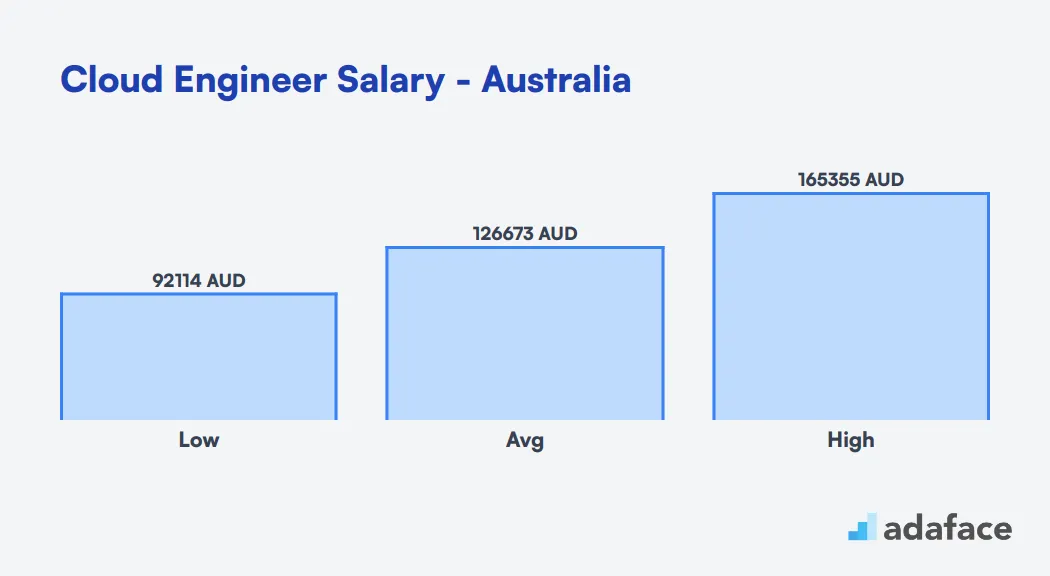
Cloud Engineer Salary in the Philippines
The average salary for a Cloud Engineer in the Philippines varies by location. In Taguig, salaries typically range from PHP 764,417 to PHP 1,459,627, with a median of PHP 1,056,297. In contrast, Manila offers a range from PHP 378,001 to PHP 1,264,674, with a median salary of PHP 691,410. Locations like Cebu City and Quezon City have lower median salaries, with figures around PHP 628,499 and PHP 363,971 respectively. Understanding these figures can help you set competitive salaries to attract the right talent.
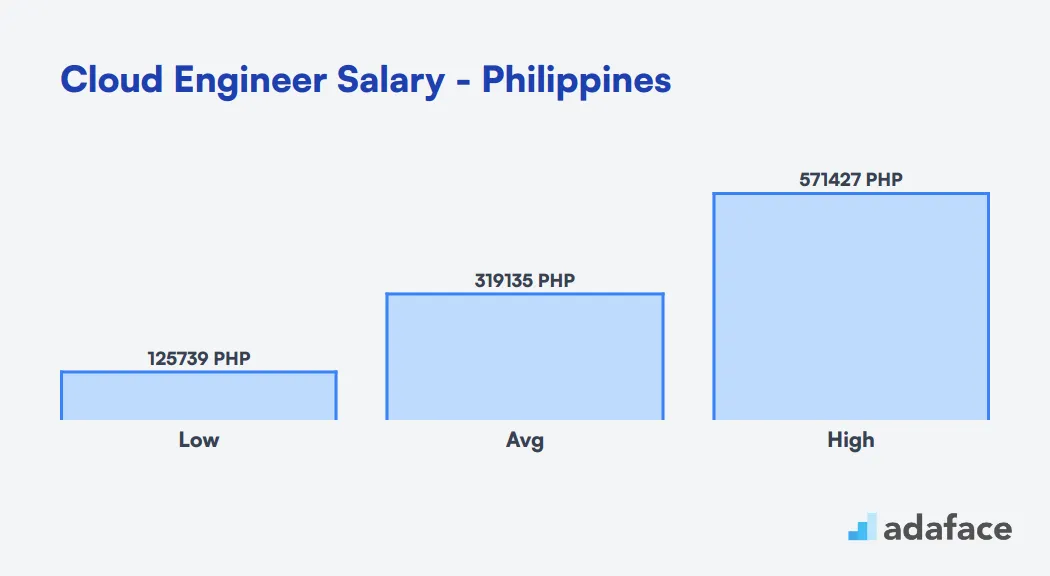
Cloud Engineer Salary India
In India, the salary for a Cloud Engineer varies significantly depending on the location and experience. Bengaluru tops the chart with average salaries ranging from INR 609,562 to INR 2,070,954, while Mumbai offers between INR 292,674 and INR 867,691. On a national level, Cloud Engineers can expect a salary range from INR 456,349 to INR 1,857,251, with a median of about INR 920,627. This variability highlights the importance of understanding regional salary trends when hiring.
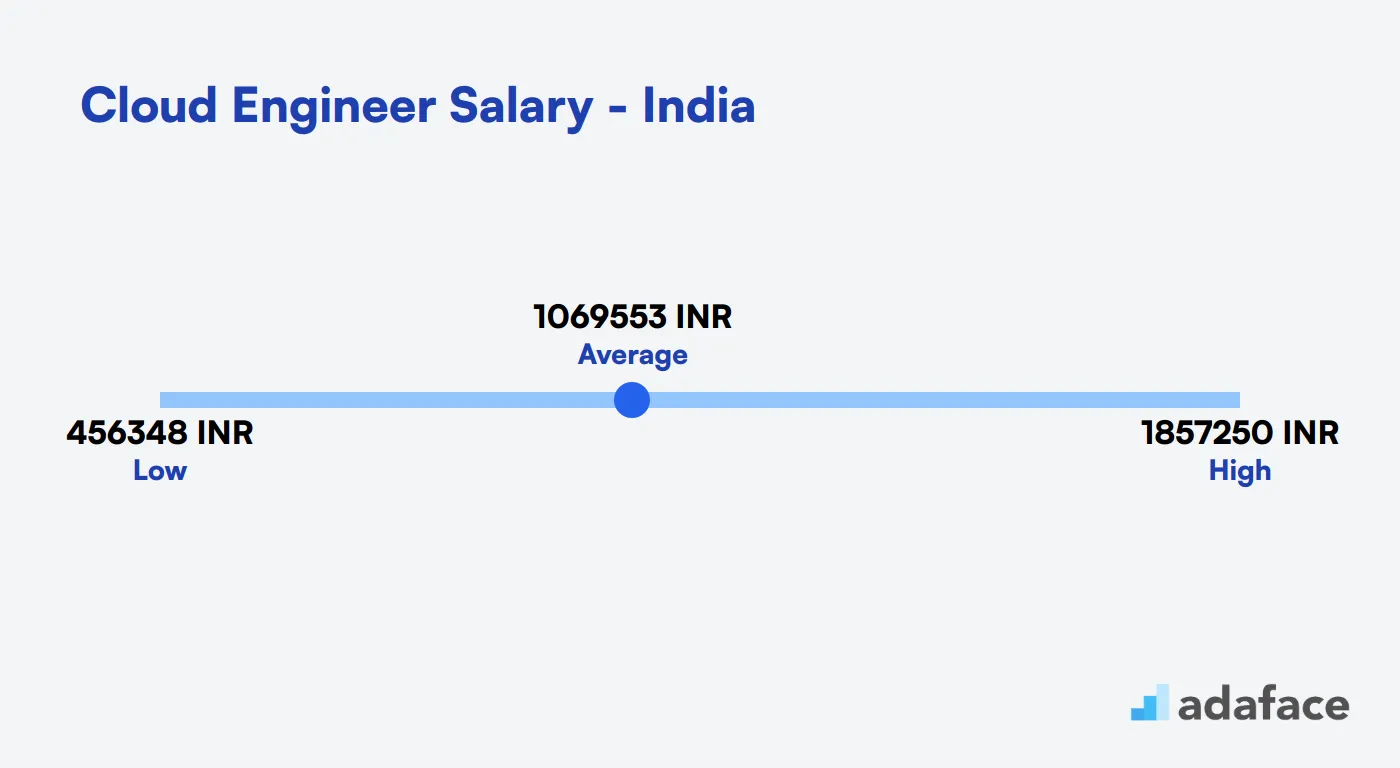
What's the difference between a Cloud Solutions Architect and a Cloud DevOps Engineer?
Many recruiters and hiring managers often conflate the roles of a Cloud Solutions Architect and a Cloud DevOps Engineer due to their overlapping responsibilities in cloud environments. However, these positions serve distinct purposes within an organization, which can lead to confusion during the hiring process.
A Cloud Solutions Architect primarily focuses on designing cloud solutions. They are responsible for creating the architecture and blueprints that guide the implementation of cloud-based systems. This role typically requires a strong background in system architecture, cloud strategy, and experience with platforms like AWS, Azure, or Google Cloud. Certifications such as the AWS Certified Solutions Architect are common in this field, and candidates often possess 5+ years of experience in IT architecture.
Conversely, a Cloud DevOps Engineer specializes in automating cloud operations. Their main tasks include managing continuous integration and continuous deployment (CI/CD) processes and using tools like Jenkins, Docker, and Kubernetes for infrastructure as code. This role generally requires a Bachelor's degree or equivalent experience, with 3+ years in DevOps or cloud environments. Cloud DevOps Engineers often hold certifications such as the AWS Certified DevOps Engineer, focusing on automation, monitoring, and deployment.
Understanding these differences is crucial for effectively sourcing the right talent. While both roles contribute to cloud implementation, recognizing their unique responsibilities helps recruiters tailor their searches more effectively.
| Cloud Solutions Architect | Cloud DevOps Engineer | |
|---|---|---|
| Focus | Designing cloud solutions | Automating cloud operations |
| Primary Responsibilities | Design architecture, create blueprints | CI/CD, infrastructure as code |
| Key Skills | System architecture, cloud strategy | Automation, scripting, monitoring |
| Tools & Technologies | AWS, Azure, Google Cloud Platform | Jenkins, Docker, Kubernetes |
| Education Level | Often a Bachelor's or Master's | Bachelor's degree or equivalent experience |
| Certification | AWS Certified Solutions Architect | AWS Certified DevOps Engineer |
| Typical Experience | 5+ years in IT architecture | 3+ years in DevOps or cloud |
| Keywords | Architecture, Design, Scalability | Automation, CI/CD, Deployment |
What are the ranks of Cloud Engineers?
When it comes to assigning ranks to Cloud Engineers, companies often confuse this with other tech roles due to overlapping skills. However, Cloud Engineers have a distinct hierarchy that reflects their experience and specialization.
- Junior Cloud Engineer: This entry-level position is for individuals who are just stepping into the cloud domain. They typically work under the guidance of senior team members and assist in basic cloud tasks like monitoring and maintenance. It's a great starting point for those familiar with cloud basics and eager to learn more.
- Mid-level Cloud Engineer: These professionals have gained some experience and can handle a wider range of responsibilities. They work on implementing cloud solutions and might start leading small projects. They are expected to have working knowledge of platforms like AWS, Azure, or Google Cloud Platform. If you're looking to assess candidates for such roles, explore cloud engineer interview questions that cover relevant topics.
- Senior Cloud Engineer: At this level, engineers are seasoned experts in cloud technologies. They lead complex projects, design cloud architectures, and mentor junior team members. Their strategic input is often sought for optimizing cloud infrastructure.
- Cloud Architect: A Cloud Architect is responsible for designing robust cloud solutions tailored to the organization's needs. They provide a vision for cloud strategy and ensure compatibility with business goals. This role requires deep expertise in both technical and business aspects of cloud computing.
Hire the Right Cloud Engineers for Your Team
Throughout this guide, we explored various aspects of hiring Cloud Engineers, from understanding their roles and key skills to crafting the perfect job description. We also discussed the importance of selecting the right platforms and structuring interviews to ensure you attract top talent for your organization.
If there's one thing to remember, it's that using accurate job descriptions and skills assessments is crucial for effective hiring. Selecting the right skills tests can significantly enhance the accuracy of your hiring decisions. Consider using tests like the Cloud Computing Online Test to evaluate candidates' technical abilities effectively.
Cloud Computing Online Test
FAQs
Key skills for cloud engineers include proficiency in cloud platforms (AWS, Azure, GCP), containerization (Docker, Kubernetes), infrastructure as code (Terraform, CloudFormation), networking, security, and programming languages like Python or Java. Look for candidates with a strong understanding of cloud architecture, DevOps practices, and experience in implementing scalable cloud solutions.
To assess practical skills, consider using cloud computing online tests that simulate real-world scenarios. You can also assign case study projects, such as designing a cloud architecture for a specific business problem. During interviews, ask candidates to explain their approach to solving common cloud engineering challenges.
Valuable certifications include AWS Certified Solutions Architect, Microsoft Azure Administrator, Google Cloud Professional Cloud Architect, and Certified Kubernetes Administrator (CKA). However, certifications should be considered alongside practical experience and problem-solving skills.
Structure the interview process in stages: 1) Initial screening call to assess basic qualifications and cultural fit. 2) Technical assessment using cloud computing skills tests. 3) In-depth technical interview covering cloud concepts, architecture, and problem-solving. 4) Case study or practical assignment. 5) Final interview with team leads or senior management to evaluate overall fit.
To attract top talent: 1) Craft a compelling job description highlighting interesting projects and technologies. 2) Offer competitive compensation and benefits. 3) Emphasize opportunities for professional growth and working with cutting-edge cloud technologies. 4) Showcase your company's cloud initiatives and commitment to innovation. 5) Leverage professional networks and cloud computing communities for referrals.
Entry-level cloud engineers typically have 0-2 years of experience, basic cloud certifications, and foundational knowledge. Mid-level engineers (3-5 years) should have hands-on experience with multiple cloud services, strong problem-solving skills, and the ability to design scalable solutions. Senior cloud engineers (6+ years) should demonstrate deep expertise across multiple cloud platforms, leadership in complex projects, and the ability to architect enterprise-level cloud strategies.
Red flags include: 1) Lack of hands-on experience with major cloud platforms. 2) Inability to explain previous projects in detail. 3) Poor understanding of cloud security principles. 4) Resistance to learning new technologies or adapting to different cloud environments. 5) Overemphasis on certifications without practical application. 6) Lack of experience with automation and infrastructure as code practices.

40 min skill tests.
No trick questions.
Accurate shortlisting.
We make it easy for you to find the best candidates in your pipeline with a 40 min skills test.
Try for freeRelated posts
Free resources



